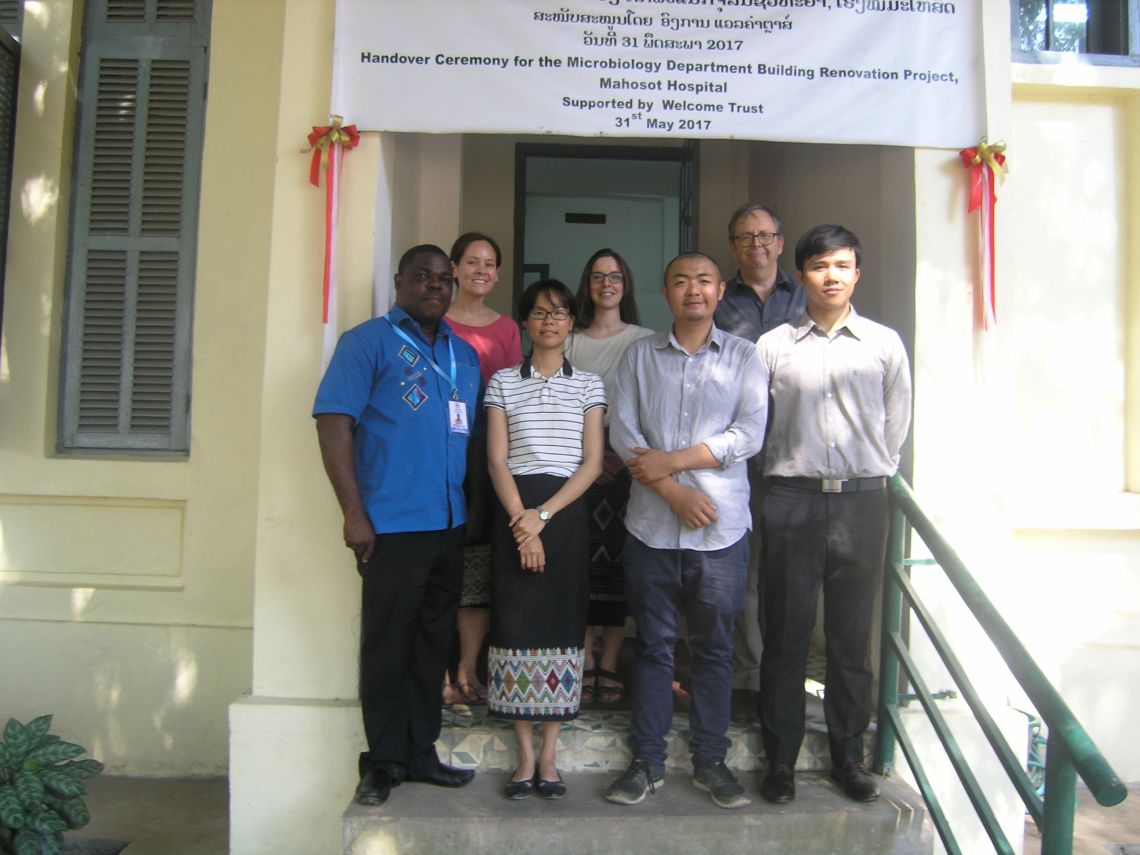Dr Celine Caillet

Podcast interview
Detecting substandard and falsified medical products

The Medicine Quality Research Group focuses on substandard and falsified medicines, critical issues often overlooked in LMICs. Recent tragic incidents underscore the urgent need for better regulatory oversight. The group explores portable screening technologies to empower regulators in identifying and preventing such medicines, potentially mitigating widespread harm and economic strain on health systems.
Improving medicine quality

Substandard and falsified medicines are a growing concern both for LMICs and high income countries. Screening technologies help identify poor quality medicines and give an early signal when issues arise. This work also provides data for models to better understand the impact of poor quality medicines on antimicrobial resistance.
Celine Caillet
Research scientist, Pharm D, PhD
- Deputy Head of Medicine Quality Research Group
Medicine Quality Research Group
The Deputy Head of the Medicine Quality Research Group (MQRG) since 2020, Dr Céline Caillet has been with MQRG since 2015, and was appointed Research Scientist in 2016.
Céline is a pharmacist and former resident of the Hospital of Toulouse. She did research on drug safety at the Center of Pharmacovigilance, Laboratory of Medical and Clinical Pharmacology of Toulouse, France. Following her MSc in Epidemiology and Public Health in Bordeaux, France, Céline completed her PhD in drug safety in Laos. During her PhD, Céline also taught pharmacology in the Department of Pharmacy at the University of Health Sciences, Vientiane.
Poor quality medical products, including medicines, vaccines and diagnostic devices, due to poor manufacture (substandard medicines) or deliberate falsification (falsified medicines, aka fake or counterfeit), jeopardise national, regional and global attempts to improve access to effective health care. They lead to avoidable morbidity and mortality, waste financial resources, and contribute to antimicrobial resistance.
There are several ways to fight against poor-quality medical products. The MQRG shares expertise and collates information to increase understanding of the prevalence and distribution of poor quality medicines around the world. MQRG’s research also focuses on the assessment of performances of portable screening technologies that could greatly empower regulators to detect falsified and substandard medicines before they reach patients. The group advocates for more investment in the regulation of medicine distribution and interventions to improve medicine quality.
Recent publications
-
Handheld Spatially Offset Raman Spectroscopy for rapid non-invasive detection of ethylene glycol and diethylene glycol in medicinal syrups.
Banerjee S. et al, (2025), J Pharm Biomed Anal, 265
-
Hide and seek with falsified medicines: Current challenges and physico-chemical and biological approaches for tracing the origin of trafficked products.
Perez-Mon C. et al, (2025), Forensic science international, 370
-
Identifying falsified COVID-19 vaccines by analysing vaccine vial label and excipient profiles using MALDI-ToF mass spectrometry
Arman BY. et al, (2025), npj Vaccines, 10
-
Using matrix assisted laser desorption ionisation mass spectrometry combined with machine learning for vaccine authenticity screening.
Clarke R. et al, (2024), NPJ vaccines, 9
-
Stable isotope ratio analysis: an emerging tool to trace the origin of falsified medicines
Roncone A. et al, (2024), TrAC - Trends in Analytical Chemistry, 174




